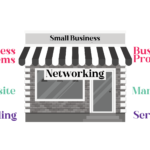You want your business to grow but you need finance to make that happen. The options for a business loan can be confusing and the risks an inducement for insomnia. It’s a headscratcher.
Do you go to your bank, a credit card provider, peer to peer lender or a wealthy family member (assuming you’re lucky enough to have one)? Then there’s the question over the type of loan you need. But perhaps the hardest decision is whether to sign a personal guarantee. We know lenders are demanding more security for new finance deals in the form of personal guarantees.
Less risk, more sleep
Personal guarantees can be the clincher – if you are comfortable to sign a personal guarantee, your options for finance will open up but you are putting your personal assets on the line. If things go wrong and the guarantee is called in you could lose your home, your car, savings. However you can reduce the risk through Personal Guarantee Insurance which protects 80% of the loan and might help you sleep better at night. It even gives access to mentoring support should your business start to struggle.
Get expert, impartial advice
When you are thinking about business finance, talk to a finance broker, accountant or solicitor. They will give you advice on which type of finance would be right for your business and what you can do to cut the risks. Check out members of NACFB or FIBA.
Make yourself attractive
Ask how you could improve your credit profile to make yourself an attractive proposition to lenders.
Then consider the pros and cons of each type of finance including:
Bank Loan / Overdraft – You will need to prove to the lender the business will generate the income and cash to repay both the loan and the facility. Security in the form of business or personal assets is sometimes needed for this type of borrowing.
Factoring or debt factoring – You ‘sell’ your invoices to a third party at a discount, who agrees to manage your sales ledger and credit control on an ongoing basis for a fixed period. In return, they advance some funds upfront when an invoice is sent to a customer. This ensures your business has a regular flow of cash.
Using a Credit Card – Business credit cards are a quick and easy way to borrow money. The criteria are fairly stringent and the limits are strict. Lenders will most likely look at your business credit score, and they may ask for personal guarantees to provide some security.
Debt Crowdfunding – This works largely in the same way as the traditional model of applying to a bank for a business loan, the main difference being that the finance is raised via a crowdfunding or peer-to-peer lending website, and the funds are contributed by multiple investors. As part of the agreement, you are required to pay the investor(s) their money back with interest – but, crucially, you don’t have to sell any equity.
Depending on how much money is borrowed, you will typically be required to provide some security, in the form of business assets or a personal guarantee.
Thinking about business finance? Don’t go it alone
Our research has found that 43%[i] of small businesses go it alone when it comes to arranging new finance for their business but taking independent financial advice is critical. Take time to assess the different ways to finance your business and know how you can mitigate the risks but don’t procrastinate; don’t let the fear of new finance hold you back from scaling up.
By Todd Davison
 ABOUT THE AUTHOR
ABOUT THE AUTHOR
Todd Davison is MD of Purbeck Insurance Services. Todd qualified as a Chartered Accountant with the Institute of Chartered Accountants England and Wales (“ICAEW”) in 2013. His training contract was with Deloitte LLP. Todd founded Purbeck Insurance in May 2016 to provide an insurance solution for Director guarantors, giving them the confidence to access business finance and pursue their growth objectives. Since launch in June 2017, Purbeck Insurance has supported SME Directors on over £40,000,000 of Personal Guarantees.
[i] Survey of 500 small business owners and directors 2019







